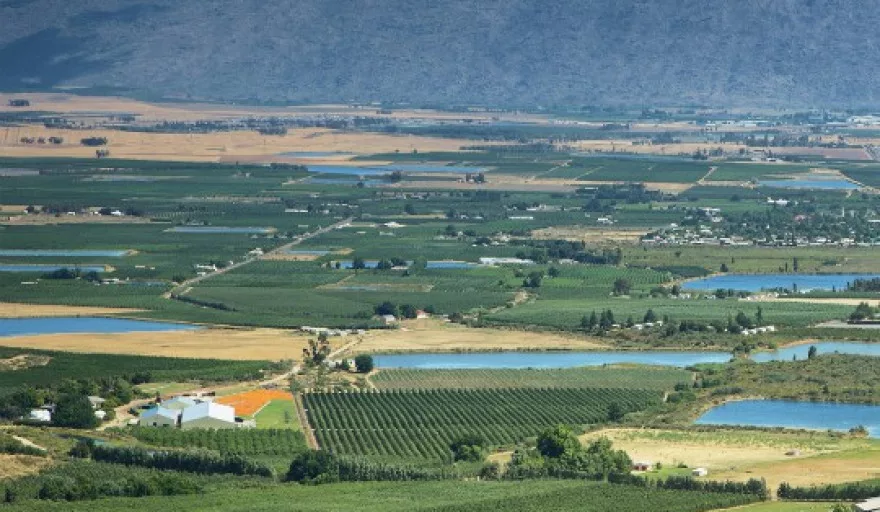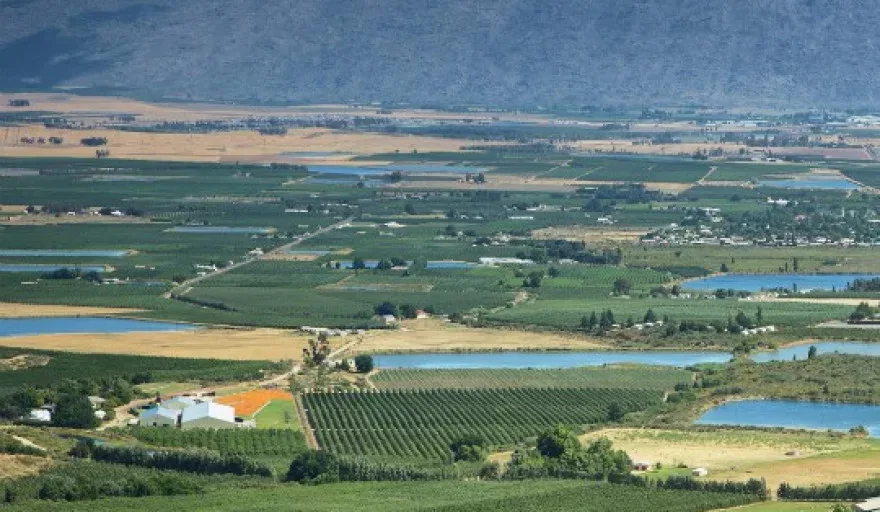
By Karim Lotfi Senhadji, CEO, OCP Africa
When we started our activities in 2016, we were well-aware of the great untapped potential of our continent. As most Africa-followers know, the continent holds about half of the world’s fertile and as-yet-unused land, in addition to large volumes of unused water sources. We believe Africa is ready for a major agricultural transformation capable of meeting the global food challenge of feeding more than nine billion people by 2050.
Granted, this is no easy task; African agriculture faces considerable challenges. Climate change affects soils – two thirds of which are located in arid or semi-arid zones – and human activities contribute to deforestation and desertification. Africa also has the youngest population of any continent, which now faces increasing unemployment and demographic pressure on food security.
While this may seem daunting, OCP Africa believes it is by no means insurmountable. We believe that by working closely with smallholder farmers and agri-business, we can facilitate the investment needed to unlock Africa’s massive potential and sustainably feed the world.
As only one of many actors dedicated to transforming African agriculture we also know that increasing cooperation and building partnerships to promote modern and responsible farming methods across the continent are central to achieving our goals. We have therefore chosen to focus on four key areas to drive the continent’s agricultural transformation; smallholder farms, investments, improving farm yields through technology, and youth.
Smallholder farms
Helping smallholder farmers succeed is our lifeblood. Smallholder farmers make up 70 percent of the population in sub-Saharan Africa and without them this transformation cannot happen. However, low productivity among these farms is a major barrier and a recurring theme caused in part by inadequate fertilizers and poor agricultural practices. OCP believes that we can help farmers overcome this barrier and shift from simple subsistence to true agribusiness by seeking to guarantee that – wherever we operate – farmers can access the right customised fertilizer product for the right price, at the right place and time.
Improving farm yields though technology
In order to provide farmers with the perfect product, OCP has also prioritised investment into soil mapping and agronomic tests. So far, we’ve had good success with crops in Côte d’Ivoire (cocoa), Nigeria (maize and rice) and Ethiopia (maize and rice). Soil mapping programmes have already been carried out in Morocco, Guinea, Togo, and Madagascar, and we plan to expand to Burkina Faso by the end of 2017.
However, it is unlikely that true agricultural transformation will take place unless all stakeholders in the sector are committed to building a thriving agricultural economy. Farmers need tangible opportunities to be part of lucrative value chains where they personally can benefit. To this end, we created Agribooster; a farmer-centred market funding model aimed at supporting small farmers. Agribooster provides access to good quality inputs, financial services, and enhanced market linkages, as well as training and extension services centred on good agricultural Practices (GAP).
The goal of the programme is to secure higher yields and sustainable profitability for African farmers while also improving post-harvest profits with access to real-time product price information and greater market access.
Investments
Transformation doesn’t happen without resources, specifically investment spending. In addition to our investments in technology and crop yields, over the past year we’ve established nine new subsidiaries which created employment opportunities across the whole of Africa. Today, we directly employ people representing 17 nationalities in 15 African countries
Encouraging investment is the key to developing African agricultural systems. From scaling up, to improving quality and facilitating market access, a wide variety of investments are needed. However, given the current global economic situation, and the situation in many African countries, investors are understandably cautious. We see opportunities for technology and data-gathering to help investors get over their hesitation, especially when looking at smallholder farms. We believe the gathering of reliable data can play an important role in overcoming financial institutions’ reluctance to invest in the farming sector by moving away from guesswork and towards a more predictable business-like approach.
Youth
Africa has the youngest population of any continent, but unemployment has increased among the 60 percent of the population aged under 24. Only three million jobs are being created for the 11 million new job seekers annually. We are committed to investing in Africa’s youth. We are recruiting 5,800 young employees based on the skills required to support OCP Group’s growth strategy. We are also organising career training of 15,000 young people. These training activities, tailored to the profiles and career aspirations of the beneficiaries, aim to develop the employability of candidates and contribute to their professional success.
At OCP Africa, we are proud to be working with African growers, using African resources, farm by farm, to unlock the continent’s vast potential in sustainable agriculture. We hope that our practices will be a beacon for other stakeholders to follow, and will contribute to the continued transformation of the agricultural sector.
To quote former IFAD Chairman Dr. Kanayo Nwanze: “as long as we treat agriculture as a poor man’s occupation, the farmers will be poor; we need to treat farming as a business.”
OCP Africa believes that, together with our partners throughout the value chain and across the continent, we can drive investment and begin treating agriculture like the business it deserves to be – and needs to be – to succeed.






























